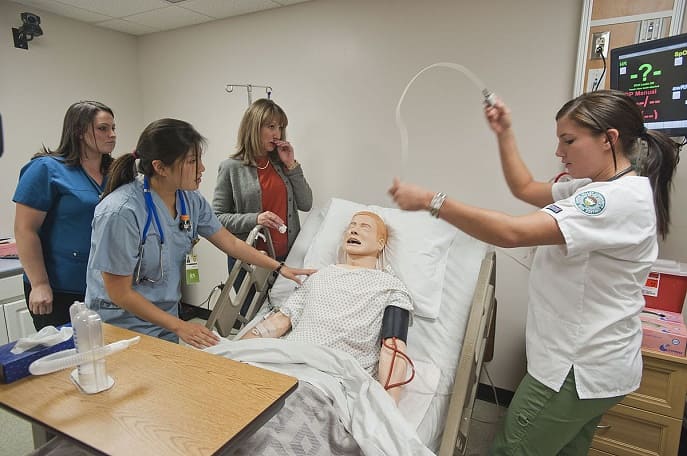Widespread and expanding, the fields of medical science and healthcare provide prodigious employment opportunities to aspiring individuals. Off the total healthcare workforce in the US, 60% of medical professionals work for the allied healthcare sector. More often than not, the healthcare streams are inter-woven and offer knowledge on several subjects and concepts when pursuing education in a specific medical field.
Medical assistant training programs are designed to prepare students for medical assistant certification. They also disseminate knowledge on several medical concepts/streams as mentioned below:
1. Medical Laws and Ethics
Medical laws have been established to help healthcare professionals understand their responsibilities towards the patients and the society at large. Laws and ethics govern the medical procedures and practices carried out for diagnosing and treating diseases. They also provide guidelines to practitioners, helping them understand their rights and duties at work. Medical ethics enforce values and ensure complete adherence to professionalism by medical practitioners.
Laws cultivate a culture of adherence to standardized practices, which is essential in upholding perpetual discipline. Students pursuing medical assistant training will be given an in-depth understanding of medical laws and ethics to ensure their definite cohesion with the established laws.
2. Phlebotomy
While undergoing the medical assistant training course, students will be trained in the process of drawing blood from the veins of the patients, otherwise known as venipuncture, for testing, donation, or research purposes. While phlebotomists have expertise in this practice, medical assistants trained in phlebotomy can also perform venipuncture to assist doctors in treating patients and collecting specimens.
Every new skill acquired helps to expand the employment horizons for the allied healthcare professionals and gives them an edge over their peers.
3. Medical Terminology and Anatomy & Physiology
For effective and accurate communication with doctors and patients, medical assistants must be equipped with extensive knowledge about the medical terminologies. Medical assistant training imparts knowledge of the basic science of medicine – human anatomy and physiology. The training enables them understand the functioning and interrelationships of the intricate functions and the systems of the body.
The study of related disciplines of anatomy and physiology is essential for students to learn numerous terminologies and perform daily tasks of patient care, and assist doctors in providing treatment through knowledge of the human body and its systems.
4. Pharmacology
This branch of medicine educates students on medication and the effect of drugs on the biological systems of the body. While prescribing medicines is a job for the doctors, medical assistants are expected to be aware of the common forms of medication. Since medical assistants administer drugs, knowledge of the drug brands and names of generic medicines makes their job easy. It also eases the efforts of the doctors in prescribing the dosage.
To administer medication efficiently, medical assistants must be able to clearly comprehend written prescriptions and medication orders. Several doctors specify the knowledge of pharmacology as a prerequisite when they seek to hire medical assistants.
5. Medical Billing
Medical billing is the process of recording the patients’ information and updating their medical history using a specialized coding system. Information about diagnosis and treatment is converted into universally-accepted codes and saved in the repository for numerous purposes. The information can be retrieved and used as and when needed. One of the primary purposes of recording the details is to use the data to claim payment from insurance companies, and patients for the medical services rendered by the service providers (doctors, medical establishments).
Few establishments require medical assistants to be skilled at billing and coding, and take charge of recording and updating patients’ medical history. Additional knowledge about medical procedures and administrative practices increases the employability of qualified medical assistants.
6. Clinical and Diagnostic Procedures
Medical assistants can strengthen their job profile by specializing in various skills that add value to their job, and also to their employer’s routine operations and services.
Diagnostic procedures are often performed at hospitals, clinics, and laboratories to identify medical conditions and causes of diseases. Medical assistants can be engaged by hospitals to perform diagnostic readings and explain results of the tests to the patients. Hands-on knowledge about diagnostic procedures helps to widen the scope of work for the assistants, as they can efficiently deliver on conducting basic laboratory tests, sterilizing medical equipments, preparing patients and operation rooms for x-rays and other procedures respectively.
Conclusion
With a diverse range of specialized skills and an increasing demand for healthcare , medical assistants have encouraging career prospects. While good career opportunities await, prospective professionals can acquire the necessary education and certification to fill in the demand for healthcare services. Medical assistants can gain rapid career growth by continuing to learn more about their field.




